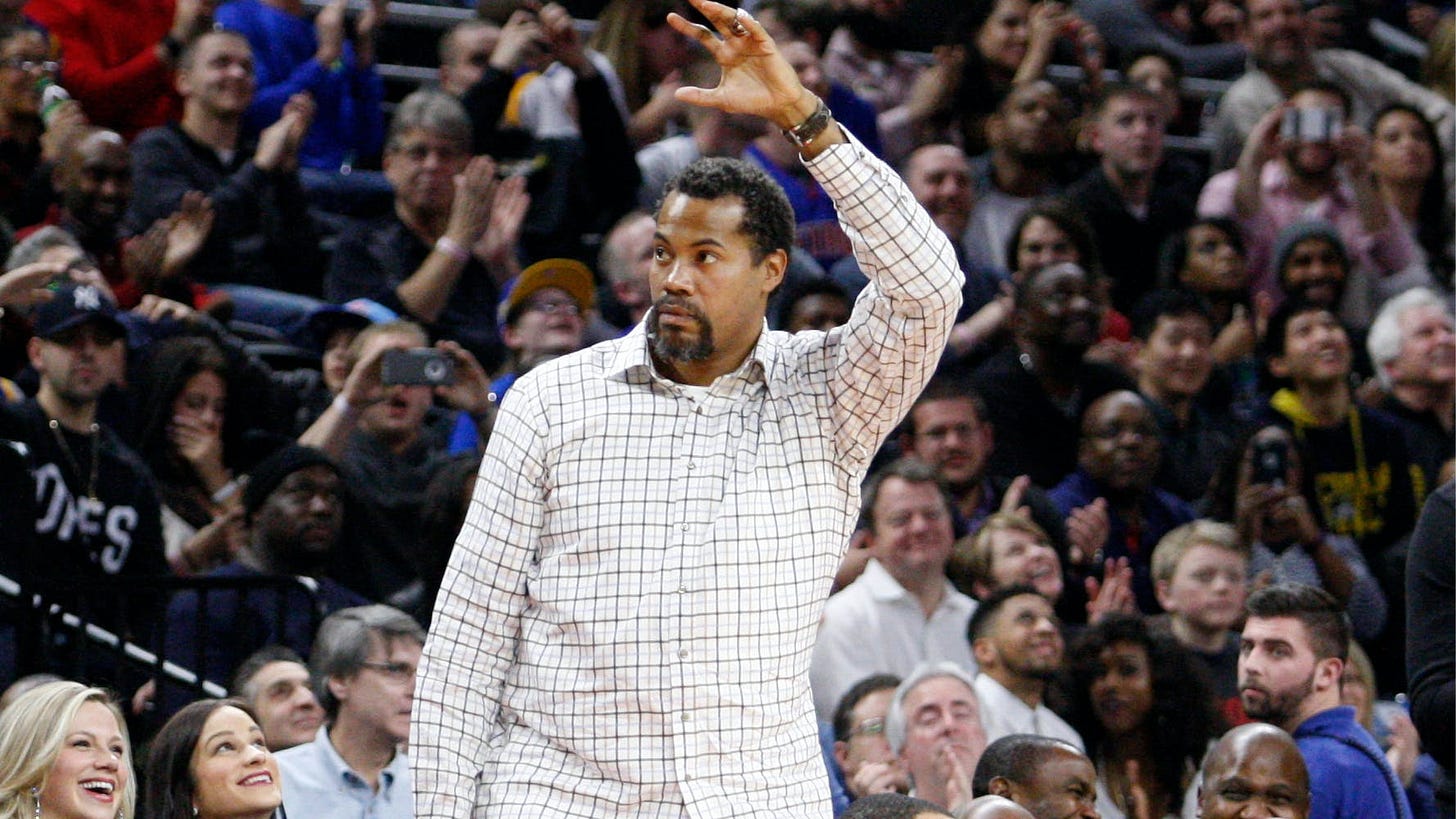Ball don’t lie. Neither does Rasheed Wallace.
Rasheed Wallace is set join that old curmudgeon Larry Brown on Penny Hardaway’s Memphis coaching staff. Yes, this Rasheed Wallace. The progenitor of the modern hothead, Wallace was the trash talking, floor stretching, jersey tossing, paint defending final piece of the 2004 Pistons championship team. He’s Draymond Green’s spirit animal, the patron saint of those who fearlessly speak their mind. He also had a run-in or two with referees.
This is where I plug an under-the-radar podcast, Whistleblower, which details Tim Donaghy and the NBA betting scandal. They interview Rasheed and he is — I know this is going to stun you — very candid. The whole series is a fascinating listen, and worthy of its own discussion at some point.
Perhaps Wallace is best known for introducing the phrase, “Ball don’t lie” into the NBA lexicon, but that’s far from his only memorable quote. And let me warn you, once you start digging in Sheed country, it is quite possible that you will not stop finding gold.
You don’t play 16 years in the NBA without a great combination of skills and smarts. Rasheed had a post game, but could space the floor out to three where he was an effective, but not great, shooter (32% over his career). Although he played in an era before switching on the perimeter was a requirement for a big, it’s easy to see how a player with his build, quick feet and intelligence could succeed today. Wallace stands 6’11” and has a wingspan somewhere in the 7’3” range (reports vary).
Individually, he could lock down his man in the post (here is he stonewalling prime Dwight Howard at age 35). But he was also a tremendous team defender, always rotating and challenging people at the rim. He was always talking, always directing traffic and he told everyone where they were supposed to be.
When you consider his aforementioned skill, intelligence and communication, it’s no surprise that Joe Dumars had long seen coaching as a possibility for Wallace, nudging him to consider the option. Plenty of those around Wallace could see the same thing, Here’s Stan Van Gundy on Sheed: "He's extremely smart, ahead of every play. He doesn't miss helps or rotations. He knows when it's time to shoot and time to pass. I've never understood why he isn't a perennial All-Star."
To coach in today’s NBA, being a former player isn’t a prerequisite, but the cache doesn’t hurt. It’s extremely important for coaches to understand their players and be able to communicate effectively with them, and Rasheed checks both boxes. Wallace never cared much about his public perception and he is clearly comfortable in his own skin — I am positive that he has the internal self confidence to trust his instincts. Also, he would be tremendous with the media.
But Rasheed Wallace was never one to seek the spotlight, choosing instead to put his teammates first and give back to his local community. He served as an assistant coach for the Pistons for one season after he retired, and then he took some time off. When he returned to coaching he decided to coach High School Basketball.
You don’t coach high school basketball if you want prestige or fame, you do it because you love basketball and care about teaching the game. For Rasheed, it’s simple. “Trying to teach them how to play this game the right way, not how they see it on TV," Wallace said.
So now Rasheed Wallace moves onto Memphis, where he’ll teach more young men how to play the game the right way, with his unique brand of braggadocious genius. He’ll carry with him all the gravitas that comes with a 16 year NBA career, an NBA title, and a treasure trove of legendary stories.
He’ll also carry an expanded philosophy of his famed Ball Don’t Lie mantra. What began as a righteous vindication delivered after an opponent missed a free throw — after a poor call by the ref (obviously) — has grown into a beautiful kernel of wisdom:
“It can go a lot deeper than the actual statement itself," Wallace said of his credo. “When the ball don’t lie, you can look at it as, OK, if I put that hard work in with shooting, what’s going to happen? The ball is going to go in more. If I’m doing a lot of hard work, in the gym, in the weight room, I’m putting that hard work in -- then throughout your career, that ball is not going to lie. It can mean many things.”
What matters to you? What do you dream about? What’s worth suffering for? What do you love? Make a plan, set aside the time, and get to work. Put in the time. Every day. You will be shocked where you’re at a year from now.


